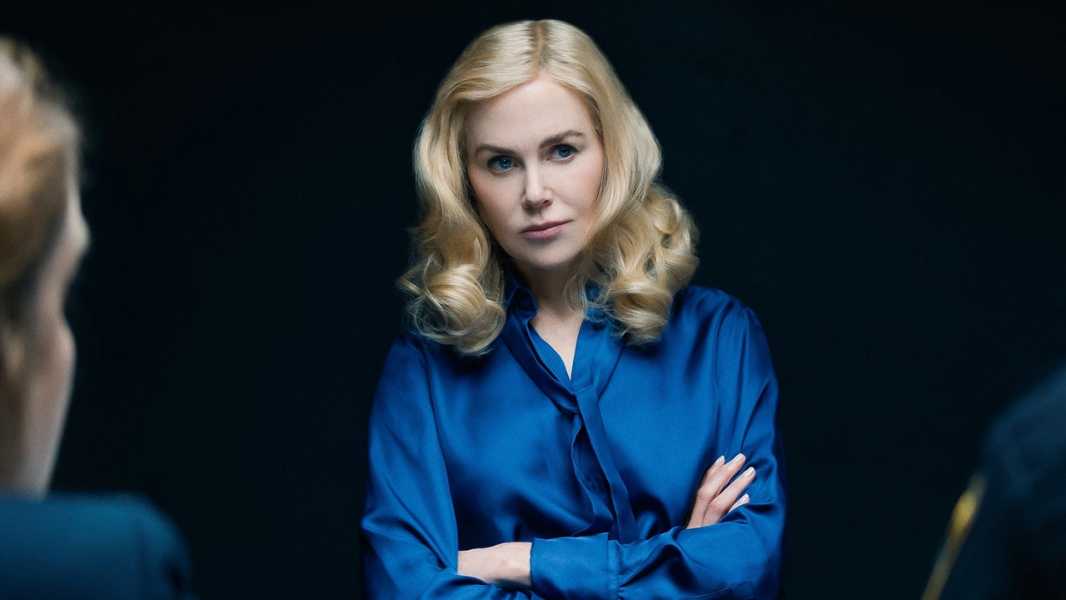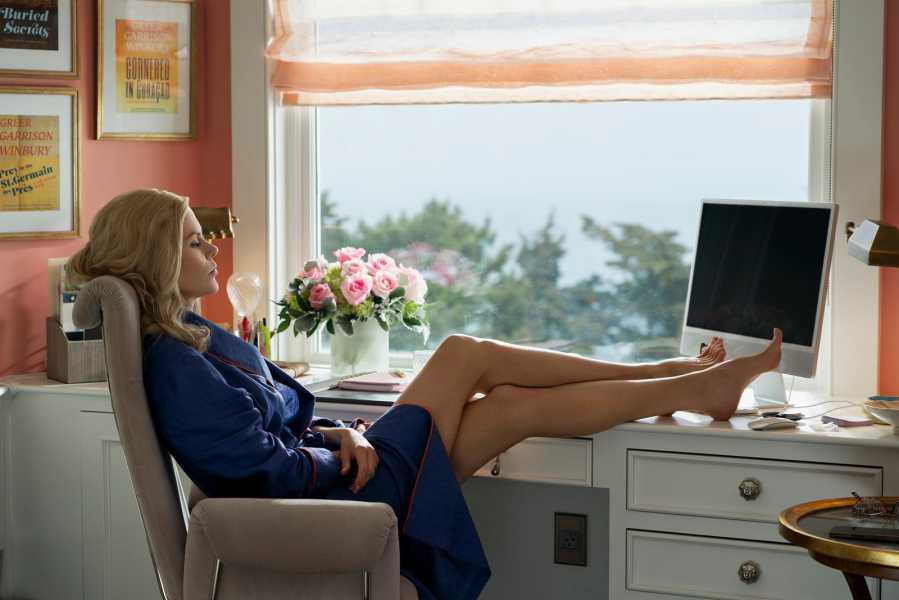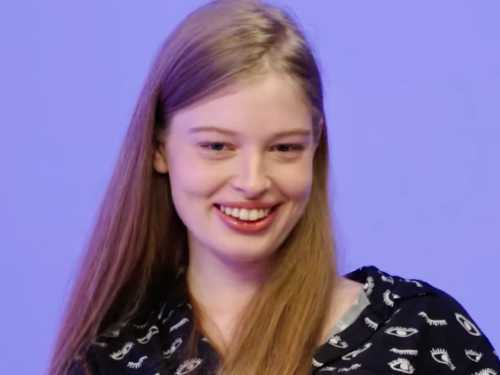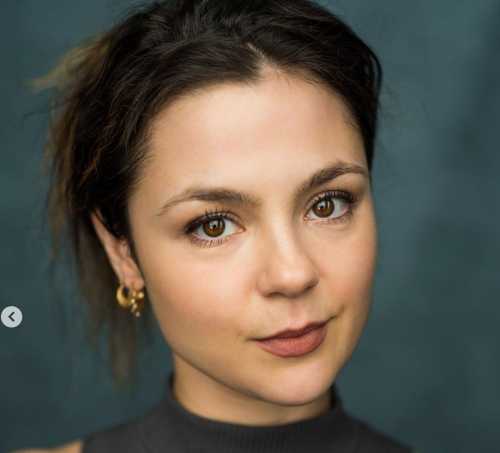
Save this storySave this storySave this storySave this story
If you’ve watched more than a handful of movies over the past few years, you’ve undoubtedly seen a disconcerting ad for AMC Theatres, extolling not only that company but the beauty of the movies more broadly. It’s called “We Make Movies Better,” and Nicole Kidman is the only actor in it. First, she’s outside on a wet day, perhaps moments after the last drops of a downpour, stepping high-heeled into a puddle in which a bright-red neon AMC sign is reflected. Her coat has a hood, but, before she’s safely inside the theatre, she peels it off slowly, the better to smile up at the marquee. Then Kidman’s inside, coat gone, walking the cinema’s empty halls wearing a glittering, sequin-heavy pin-striped suit. She waxes poetic about the movies, about how “we need that, all of us—that indescribable feeling we get when the lights begin to dim, and we go somewhere we’ve never been before.” The light from the projectionist’s booth haloes out from behind her head in warm, sanctifying rays, electrifying strands of her hair.
Then she sits and crosses her legs neatly—every seat but hers is empty and pristinely clean, not a loose kernel of popcorn in sight—and delivers, in her breathy Aussie twang, a couplet of sentence fragments, defining cinema itself: “Dazzling images on a huge silver screen. Sound that I can feel,” she says. She’ll get no argument from me. Then a bid for the emotions: “Somehow, heartbreak feels good in a place like this.”
The first time I saw this ad, it was the summer of 2022, just as the worst of the Covid restrictions were easing, and Americans were being encouraged, en masse, to get back to their rightful roles as enthusiastic moviegoers. It played before an early afternoon showing of “Top Gun: Maverick.” The hit flick had been out for several months by then, and, like Kidman, I was mysteriously alone. The ad gave me an uncanny feeling of companionship with the veteran actress: I was there to see something starring Tom Cruise, Kidman’s previous husband of eleven years, and it still felt strange and—yeah, she had a point!—quite miraculous to be at the movies. Part of the ad’s purpose was to welcome us screen-lovers back home, that was obvious. But its larger effect, that day, was to make me realize, all over again, just how powerful celebrity can be. I knew this woman—her personal past, the whole history of her famous roles. She looked like she could pop right through the screen and sparkle her way over to the seat right next to mine.
This kind of familiarity—a way of talking through the screen, jostling past even the most interesting particulars set forward in a script—can make a performer a kind of alien, companionate presence onscreen. Yes, they’re saying their lines and making the right faces and getting the story, image by dazzling image, across to the crowd. But they are also, implicitly, at your shoulder as you watch, pointing out the fun of their performance, and of the whole medium conveying it. Kidman’s one of these types—maybe the foremost among them. And, although AMC paid her to talk about the movies, it’s possible that her powers, these days, are best exploited on TV.

Photograph by Seacia Pavao / Courtesy Netflix
Take Kidman’s performance in the new silly-sloshy Netflix murder mystery “The Perfect Couple.” She plays a very prolific, very wealthy novelist named Greer Garrison Winbury. She’s married to Tag (Liev Schreiber), a stylish, nonchalant trust-fund patriarch, who is constantly indulging in pot and booze instead of lowering himself to the indignity of holding a job. Their son Benji (Billy Howle) is about to get married to the relatively proletarian Amelia (Eve Hewson). The family’s big, yawning estate on Nantucket is attractively, if coldly, decorated for the occasion. But after a rehearsal dinner that stretches late into the night before the wedding, Amelia’s best friend and maid of honor, Merritt (Meghann Fahy), washes up dead on the beach just outside the Winbury home. The show, based on a book by Elin Hilderbrand and directed by Susanne Bier, isn’t subtle in its use of contemporary archetypes: we know that Merritt is an “influencer” type because she’s on Instagram a lot. You don’t need to look much more closely to realize that she’s been having an affair with Tag, and that she’s recently realized that she’s pregnant. (If you’re worried about “spoilers” for a show like this, please believe me: you’re missing the point.)
The story unfolds lopsidedly in terms of perspective. Often, we’re over Amelia’s shoulder, experiencing the murder mystery as an unfolding of class privilege under pressure. She’s not as in love with Benji as she probably ought to be: one of the last things she confides to Merritt is that she’s got something like cold feet. Perhaps this bit of distance helps her to see the way the Winburys close rank—and also, often, pull rank—when the authorities come looking for answers about the dead body on their property. “This’ll all be a distant memory in a couple weeks,” Tag says, not because he knows anything we don’t but because he can’t imagine being too seriously inconvenienced. Signs of the family’s social standing are everywhere—Groton and Deerfield come up in conversation. The writers want us to know that they’re hip to the Northeast boarding-school scene. “Nantucket red” is seldom missing from an outfit.
But “The Perfect Couple” is also trying to be a loose, panoramic comedy from multiple perspectives: in the early episodes, information—accompanied by lots of broad, hit-or-miss jokes—is dispensed during interrogations conducted by the officers Nikki Henry (Donna Lynne Champlin) and Dan Carter (the always funny, always intelligently present Michael Beach). Nikki is the classic out-of-towner who comes to a new precinct, mildly galled by how much influence the rich exert over the Nantucket police. Dan knows the game and plays it with a genial cynicism. It takes Nikki’s goading to fill him with enough class antagonism to chase down the truth. Each of their interrogations takes us closer to the inner workings of the family, past the surface jerkiness of, say, Benji’s brother Thomas (Jack Reynor), who steals people’s meds and then downs them indiscriminately, in a game he calls “pill roulette,” and into the particulars of Thomas’s relationship with his ruthless, money-hungry wife, Abby, who is played with sharp-witted fun by Dakota Fanning.
We’re never really invited, though, into Greer Winbury’s subjectivity. Of course, the show teases us, all the while, with the prospect of her complicity—if not outright guilt—in Merritt’s killing. But Kidman’s mere presence makes her legible to the point of transparency to the audience. On some level, “The Perfect Couple” is a kind of genre collage, making us think of other more serious-minded—if also quite soapy—shows about rich people and their often fatal foibles. Greer’s mutually destructive, sometimes marginally sexy relationship with Tag reminds us of Kidman’s role in “Big Little Lies,” as the equally prosperous, equally blond Celeste, who is in an obviously abusive, occasionally sadomasochistic relationship with her vaguely fascist husband Perry, played by Alexander Skarsgård. This effect of doubling past media—not critiquing it so much as wearing its hand-me-downs and more or less pulling off the look—is intensified by the presence of Fahy, who had a prominent role in the most recent season of the resort-core hit “The White Lotus.”
Kidman knowingly symbolizes this whole world of televisual interest in the rich. She’s got a face like one of the slinkier, sexier, more elusive species of big cat—a puma, say, or a lynx—one of those vague, quick, elegant eminences you hear not so much roaring as crooning from a nearby range of hills and hope not to see up close. Yeah, there’s a dead girl, but that won’t stop her from putting on her silky pink-on-salmon outfit and doing a softball interview with a fawning reporter from People magazine. Why should it? “With these kind of people, it’s always about the money,” some cop says toward the end of the show. He’s right as far as it goes—about the Winburys, but about us watchers, too. Kidman’s playing an archetype—tough, rich, delightfully mean—and playing it like Lynyrd Skynyrd plays “Free Bird” or Billy Joel plays “Piano Man”: because we’re all asking for it, and because we won’t stop. Greer’s disdainful, stuck-up lines ooze out of Kidman’s mouth. Yes, she’s trying to offend Amelia, but, more to the point, she’s offering a stage whisper to the audience: “Yep, it’s that kind of show. The kind you liked before TV was supposed to be art—when we were all just friends. Didn’t you like that? Don’t you like it all over again?” ♦
Sourse: newyorker.com






